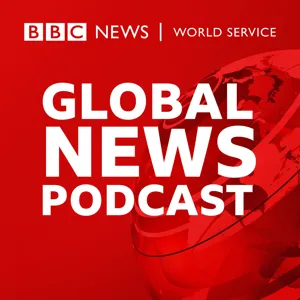This episode contains strong language.
A major new United Nations scientific report has concluded that countries and corporations have delayed curbing fossil-fuel emissions for so long that we can no longer stop the impact of climate change from intensifying over the coming decades. In short, the climate crisis has arrived, and it’s going to get worse before it can get better.
In this episode, we explore the main takeaways from the report — including what needs to happen in the narrowing window of climate opportunity to avoid the most devastating outcomes.
Guest: Henry Fountain, a reporter covering climate for The New York Times
Sign up here to get The Daily in your inbox each morning. And for an exclusive look at how the biggest stories on our show come together, subscribe to our newsletter.
Background reading:
- Here are the key takeaways from the report, including how we know human influence has “unequivocally” warmed the planet.
- For the next 30 years or longer, there will be more, hotter heat waves, longer and more intense droughts, and more episodes of heavy downpours that result in flooding.
For more information on today’s episode, visit nytimes.com/thedaily. Transcripts of each episode will be made available by the next workday.













